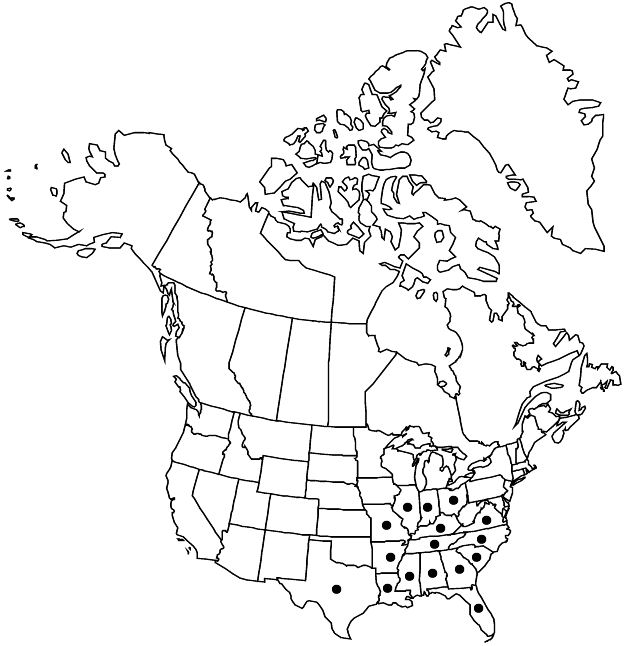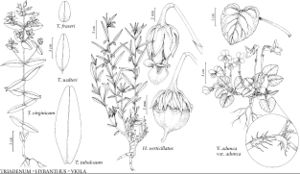Triadenum tubulosum
Phytologia 2: 289. 1947.
Herbs erect, to 10 dm, sometimes branching from near base, sometimes with ascending branches in distal 1/2+. Stems: internodes 2-lined at first, then terete. Leaves sessile or (distal) subsessile, rarely amplexicaul; blade narrowly oblong or elliptic to oblanceolate, 50–120 (–150) × 10–40 (–50) mm, base rounded to truncate or subcordate, apex rounded or rounded-apiculate to retuse, gland-dots intramarginal. Inflorescences spiciform-cylindric, 3–7-flowered from terminal node, with sessile or pedunculate inflorescences and flowering branches from to 4 proximal nodes. Flowers 15 mm diam.; sepals narrowly oblong, 4–7 × 1–1.5 mm, apex acute to obtuse; petals elliptic-obovate, 5–8 mm; stamen fascicles 4–7 mm; filaments 1/2+ connate; styles 0.8–1.5 mm. Capsules cylindric, 8–12 × 3.5–4 mm, apex obtuse. Seeds 0.8–1.2 mm.
Phenology: Flowering late summer–early fall (Aug–Sep).
Habitat: Swampy or marshy ground in woods
Elevation: 0–500 m
Distribution

Ala., Ark., Fla., Ga., Ill., Ind., Ky., La., Miss., Mo., N.C., Ohio, S.C., Tenn., Tex., Va.
Discussion
The absence of laminar glands in leaves is a more reliable characteristic for differentiating Triadenum tubulosum from T. walteri than sessile versus petiolate leaves, which are not always quite sessile towards the inflorescence in T. tubulosum, or sepals, which can be obtuse in both.
Selected References
None.
